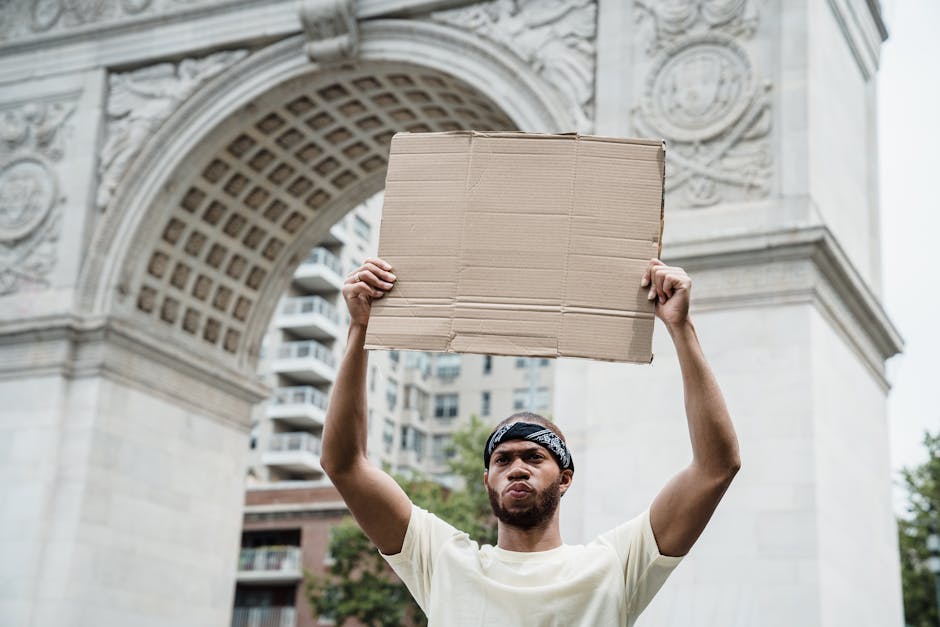The proliferation of social media platforms has irrevocably altered the landscape of political discourse. This digital agora, once a niche forum for the politically engaged, has become a central arena for the exchange of ideas, the mobilization of support, and the shaping of public opinion. But what is the precise impact of this digital transformation? Does it foster healthier debate, or does it lead to echo chambers and polarized perspectives? A nuanced examination of this phenomenon reveals a complex interplay of factors, highlighting both the opportunities and the dangers inherent in social media’s influence on political discourse.
A fundamental shift in the dynamics of political communication is readily apparent. Traditional methods, reliant on established media outlets and carefully crafted political narratives, have been challenged by the immediacy and accessibility of social media. Candidates can bypass traditional gatekeepers, directly engaging with potential voters and disseminating their messages at unprecedented speeds. This democratization of political communication presents both advantages and disadvantages. On the one hand, it allows marginalized voices and grassroots movements to gain a platform previously unavailable. On the other hand, this very accessibility can also lead to the dissemination of misinformation and the amplification of harmful rhetoric.
The speed and reach of social media amplify the volume of political discourse, but not necessarily its quality. This rapid exchange of information often lacks the nuance and depth characteristic of in-depth journalistic reporting or rigorous academic analysis. Political discussions frequently descend into simplified soundbites and emotionally charged exchanges. This is particularly true in the realm of heated debates. The pressure to condense complex issues into digestible fragments, suitable for character limits and viral spread, often leads to oversimplification and, ultimately, a decreased level of substantive engagement. Furthermore, the very nature of social media fosters a culture of immediacy and reaction, often stifling the development of thoughtful, considered political positions.
Another significant consequence of social media’s impact is the creation of echo chambers. Algorithms, designed to curate personalized feeds, often expose users to perspectives that reinforce existing beliefs. This phenomenon, often referred to as filter bubbles, isolates individuals within ideological enclaves, effectively limiting exposure to dissenting viewpoints. Such isolation creates a fertile ground for the proliferation of misinformation and conspiracy theories, as individuals are shielded from contradictory evidence and reasoned arguments. The perpetuation of these echo chambers can contribute to the polarization of political discourse, rendering constructive dialogue increasingly difficult.
However, the influence of social media is not entirely negative. It serves as a potent tool for political mobilization and organization. Social media platforms facilitate the rapid dissemination of information critical for organizing protests, raising funds for campaigns, and mobilizing supporters around specific issues. Grassroots movements have leveraged social media platforms to organize and exert significant influence on political agendas. This ability to connect with and empower individuals beyond traditional political structures is a noteworthy positive aspect. The democratization of political participation, enabled by social media, should not be underestimated.
Beyond the mobilization potential, social media plays a significant role in shaping public opinion. The constant stream of information, often filtered through personal connections and trusted sources, plays a critical role in influencing public perceptions of candidates and policies. This constant barrage of content, however, also raises serious concerns regarding the potential for manipulation and the influence of vested interests. Political advertising and misinformation campaigns can exploit algorithms and targeted advertising strategies to shape public opinion and even manipulate voting patterns. A critical examination of the role of social media in shaping public discourse must acknowledge these potential dangers.
Furthermore, the spread of misinformation and disinformation poses a substantial threat to democratic processes. The ease with which false information can be disseminated across social media networks erodes trust in institutions and undermines informed public debate. The sheer volume of content, coupled with the speed of its propagation, makes identifying and combating these narratives an enormous challenge. This calls for a more robust framework for media literacy and critical thinking, empowering individuals to evaluate information presented on social media with greater skepticism and discernment.
Finally, the issue of online harassment and abuse is an undeniable consequence of social media’s role in political discourse. The anonymity afforded by online platforms can embolden individuals to engage in abusive or hateful behaviour towards political opponents and figures. This creates an environment of fear and intimidation, suppressing open dialogue and discouraging participation. This toxicity, far from fostering healthy political discourse, can have a chilling effect on free speech and participation in public life. The need for robust moderation policies and user accountability is paramount.
In conclusion, social media’s impact on political discourse is multifaceted and complex. While it offers unprecedented opportunities for mobilization, engagement, and the dissemination of information, it also poses significant challenges in terms of misinformation, echo chambers, and the polarization of public opinion. Addressing these challenges requires a multifaceted approach that includes fostering media literacy, promoting critical thinking, and establishing more robust mechanisms for content moderation and fact-checking. The future of political discourse in the digital age hinges on our ability to navigate these complexities, harnessing the potential of social media while mitigating its inherent risks. The digital agora, for better or worse, is here to stay, and shaping its trajectory to promote healthy and informed political discourse requires sustained effort and collaboration across all sectors of society.












